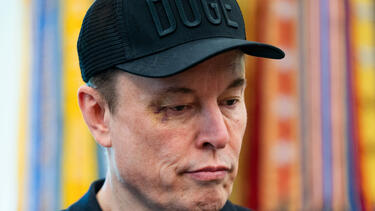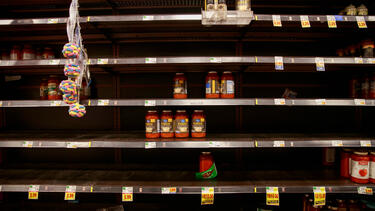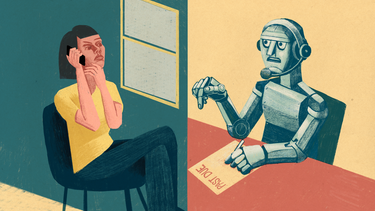All Insights Articles
When People Turn On the TV, Are They Actually Watching?
A study of baseball telecasts co-authored by Yale SOM’s Kosuke Uetake suggests that relatively few viewers actively look at the screen. Viewers perk up during suspenseful moments, suggesting that changes to advertising or even the structure of baseball games could make ads more effective.

The Problems with a Socialist Vision for NYC
Yale’s Jeffrey Sonnenfeld and co-authors suggest that some of New York City mayoral candidate Zohram Mamdani’s socialism-inspired proposals, such as city-owned grocery stores, are likely to run into inefficiencies and unanticipated downsides. They write that capitalism can be a better engine of progress.

Will Self-Driving Cars Lower Ride-Hailing Prices?
Lower cost is one anticipated advantage of incorporating autonomous vehicles (AVs) into ride-hailing services. But a study co-authored by Prof. Zhen Lian suggests that lower prices will only materialize under certain market conditions, such as using a single app for both AVs and human drivers.

When Skilled Workers Go Abroad, Their Home Countries Experience ‘Brain Gain’
When skilled workers from poorer countries migrate to wealthy ones, there are benefits for the origin countries as well as workers and the host countries, according to new research co-authored by Yale SOM’s Mushfiq Mobarak. But anti-immigrant sentiment and policy could disrupt this mutually beneficial dynamic.

Are We Witnessing the Implosion of the World’s Richest Man?
Elon Musk has less leverage in his battle with Donald Trump than he thinks, Yale SOM leadership expert Jeffrey Sonnenfeld and co-author Steven Tian write. But neither of the former allies can come away from this feud with a win.

Why JPMorgan Chase’s Jamie Dimon Could be the Right Candidate for President
Yale SOM leadership expert Jeffrey Sonnenfeld and co-author Stephen Henriques write that the CEO’s two decades as a pragmatic, stabilizing force make him an attractive alternative.

How Should Companies Talk About Tariff-Driven Price Hikes?
We asked Yale SOM marketing expert Nathan Novemsky how firms can best communicate with customers about changes forced by the Trump tariffs.

What Will It Take to Create Competitive Digital Markets?
Tech giants have been skirmishing almost daily with regulators and courts about their outsized power over our digital lives. Yale SOM economist Fiona Scott Morton recently published a collection of essays offering approaches to creating real competition in digital markets and making them work better for consumers.

How Tariffs Could Empty Grocery Shelves
Sanitube’s sanitary steel products are an essential link in the supply chain that gets milk, cheese, and other foods to your kitchen table. Todd Adams ’10, the company’s president, says that the tariff turbulence buffeting his operations could end with escalating prices and even shortages of nutritional staples.

Can AI Replace Human Debt Collectors?
New research co-authored by Yale SOM Professor James Choi finds that people are less likely to follow through on a commitment to repay a debt if it’s made to an AI agent. The finding hints at one area where humans may always retain an advantage over bots.
